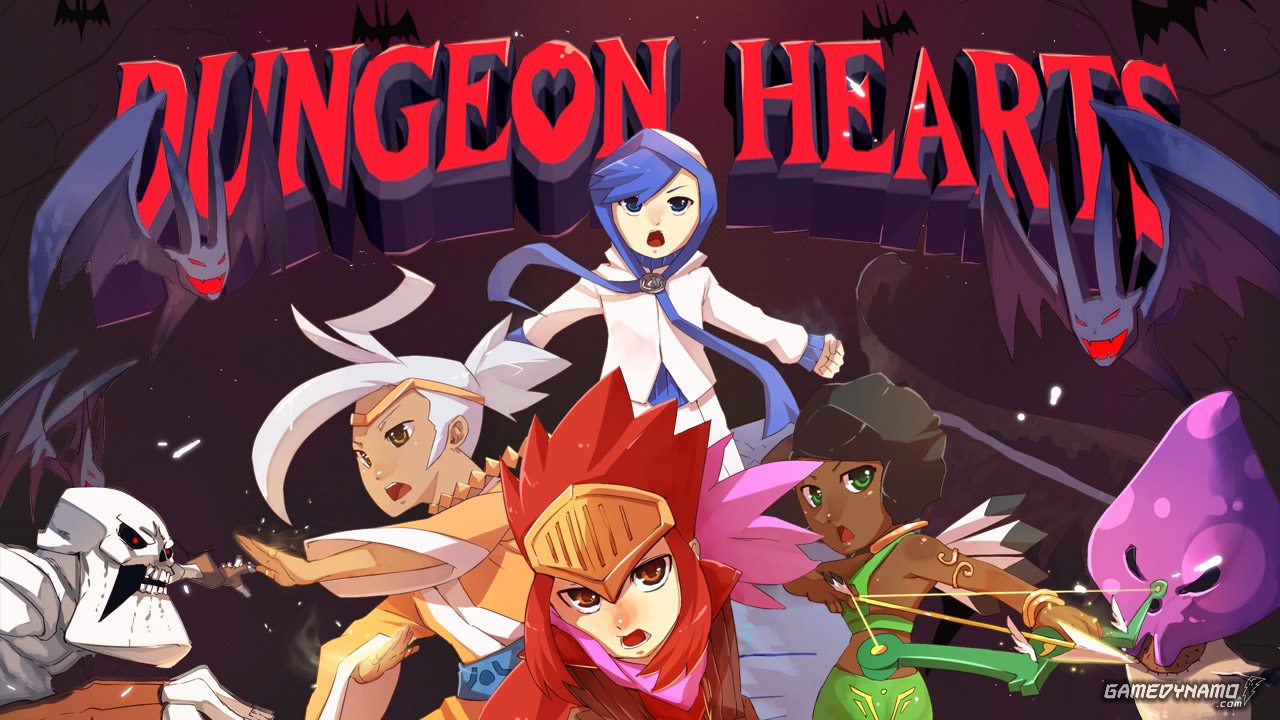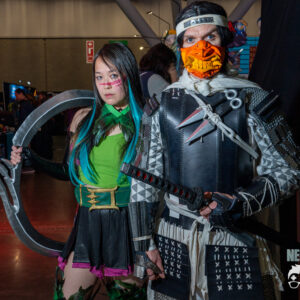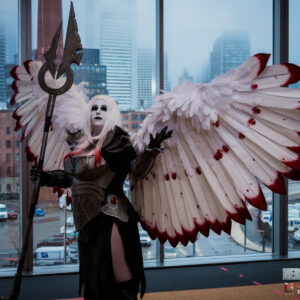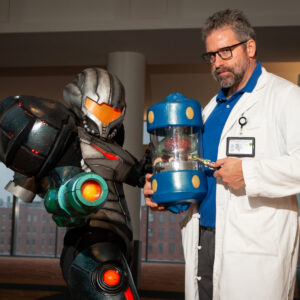Meet Chris Pavia of Cube Roots Games, Author of Dungeon Hearts

(Originally published at MuseHack)
I first became aware of Chris Pavia and Cube Roots Game (http://cube-roots.com/) when I saw his new release Dungeon Hearts and was intrigued. It’s a puzzle-action RPG that I was taken with because of it’s colorful aesthetic, clever game mechanics, and polished presentation. It also didn’t hurt that it was $2.99. I also got my money’s worth because I put in some 12 hours of game play. It’s that fun.
The game itself uses a simple metaphor – a stream of fate with symbols moving along it. Moving the symbols around destroys enemy symbols, damages enemies, delays harm, etc. It becomes pulse-poundingly kinetic and engrossing, and when you loose you always realize you could have done better.
Intrigued by his creation of such a good indie game, I asked for an interview and he granted it! So here’s a chance for us to learn from a guy that knows how to deliver product!
1) Chris it’s obvious I loved the game, so tell us how Dungeon Hearts is doing and how people are responding?
Opinions on Dungeon Hearts tend to be pretty polarized, people either love it or hate it. My goal for the game had been to take a genre I’m not a big fan of (match-3), and put a spin on it that would make for a game I’d want to play. There isn’t much innovation in the majority of match-3 games, and DH barely qualifies as one so when people see it marked as such they go in with certain preconceptions, and some get dismayed that the game doesn’t follow most of the tropes of the genre. However, people who are open to exploring the non-traditional systems seem to really like it for the exact same reasons others find it too hard or confusing. It’s been interesting seeing how varied the response has been, and what aspects people like or hate. Experimentation was a large part of what started the development of Dungeon Hearts so I could better myself as a designer, and I’ve learned a ton since shipping the game.
2) Who else was involved on the game and how did you get them together – and how do you recommend recruiting talent?
I’m mostly a one man team since it can be very difficult to find people who will see a project through to completion, even when they are being paid. I designed and created all the characters and environments in the game in 3d, but animating is very time-consuming for me so I hired a freelance animator to bring everything to life. I handled all the game design duties, and about 70-80% of the prototyping and coding. I’m a very poor programmer since I have no formal training, so a friend helped out with things like Steam integration and getting a build pipeline set up. The biggest area I had help in was the music. I knew from early on I wanted to try having unlockable soundtracks in the game, so I found 5 different musicians to collaborate with. Working with the musicians was a lot of fun, since I had each working in a different musical style there was a large variety of content constantly streaming in from them.
Recruiting talent on a indie-level can be very hit or miss, since having people drop out of contact randomly is a common occurrence. If you find people that you work well with, be sure to treat (and pay) them well so you can have a good base of people to pull from when you need it. Building solid relationships with other people in the industry is invaluable (and something I should be more proactive about myself). Once you’ve got a good base of indie-friends to communicate with, you can get recommendations from them for people who are talented and finishers.
3) The game is also very polished, and with the high-speed gameplay. How did you, an indie developer, get that level of polish, and do you have any advice for other developers who want to do so?
My advice would be to find out what your strengths are and play to those. I got my start in the industry as a 3d artist, and since my 2d skills weren’t as good I did as much in 3d as I could. I also chose an art style that would be quick to produce content for. The characters are mostly low-poly, and I tried to avoid too much detail in favor of having 2 or 3 color palettes and simple shapes and silhouettes. I also have a love affair with particle effects, so I tend to use a lot of them. They are simple and quick to create, yet add a lot of life to a scene.
4) How did you distribute it and get publicity – and any insights to share?
I worked with a company called Devolver Digital to publish and distribute the game. They specialize in indie games so working with them was pretty painless. Since I have a day job, wife, and kid, they were a huge help in handling things like marketing, trailers, and reviews so that I could concentrate on development. Working with a publisher can go completely the other way as well so do your homework, both on the publisher you are talking to, and if you even really need a publisher to begin with.
5) Where does indie game development fit into your career plans and those of your compatriots?
I’d love to develop games full time, but with a family to support I keep a day job so we can have a roof over our heads. Of course that means that I have to fit game development in wherever I can, so I try to get at least an hour or two in every day, usually during my lunch break, early in the morning or after my son goes to sleep. I also try to keep my designs small so that a few hours work can make a big impact. Dungeon Hearts isn’t that big of a game, but it’s also priced accordingly so I never saw much complaining that you can beat the game in an hour or two once you are proficient with the gameplay.
6) What do you think is happening in the game market – because I can tell you it’s confusing enough t me as is.
It is indeed pretty confusing, with new platforms and frameworks coming out at a breakneck pace. I remember when I was deep in development of Dungeon Hearts, I’d always get really nervous right before Apple had a press conference, because I knew it would probably result in some new aspect ratio or hardware considerations I’d have to deal with. And it’s not going to let up anytime soon, so I prefer to just focus on the game itself. A fun, well-designed game is going to be fun regardless of the platform. Many gamers can quickly tell if your game was made out of love, or just as a vehicle for micro-transactions, so respect your players!
7) What advice do you have for people wanting to go into gaming as their career or part of their career?
If you’re young and untethered, I’d say take as many risks as you can! Quit your job, move in with a bunch of friends, and go head-long into it. Once you’re older and saddled with responsibility, you’ll have less “what-ifs” clouding the back of your mind. Alternatively, don’t be afraid of working for the man for a while before going indie. I’ve worked for several studios, from very small to very large, and being part of the process of creating games with actual teams and pipelines gave me the skills I needed to strike out on my own. Most importantly, just make games. The quality is not important when you’re first starting out. You’ll learn from each game you make, so pump them out as quickly as possible to build up your skills.
8) Any other insights to share?
Find some way for your game to stand out. I’d guess 85-90% of games that are in development are just glossed over by players/media/etc because they look or play just like every other indie game out there. There are a mountain of pixel-art platformers in the wild, so unless you are going to do something unique with it (and quickly identifiable as unique), then it’s probably going to be forgotten by most. If I watch a video or trailer of your game in action, I should see as quickly as possible some hook/mechanic/interaction/style that imprints the game onto my mind.
9) OK, what’s the next game you’re going to addict people to?
Since I’m a mostly one-man-band, I have to get as much milage out of my content as I can. With that in mind, it has always been my plan to do a series of games in the Dungeon Hearts world so I could re-use all those assets I’ve made, in addition to expanding the cast with each game. Some will be direct sequels, but most will feature completely different gameplay. The current Dungeon Hearts game I’m working on is a blend of roguelike, card game, board game, and miniatures game. One of the common criticisms people had with DH was the lack of a more direct insight into the world and characters, so this game should have a more narrative-driven aspect to it as well. It’s still in the early stages, but it’s shaping up nicely. I post shots of the development on my twitter account from time to time if anyone is interested in seeing how it develops.
Thanks Chris!
Steven Savage is a Geek 2.0 writer, speaker, blogger, and job coach. He blogs on careers at http://www.musehack.com/, nerd and geek culture at http://www.nerdcaliber.com/, and does a site of creative tools at http://www.seventhsanctum.com/. He can be reached at http://www.stevensavage.com/.



